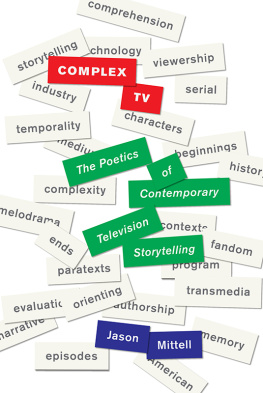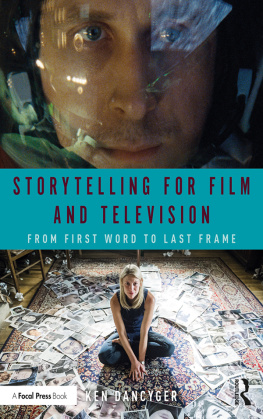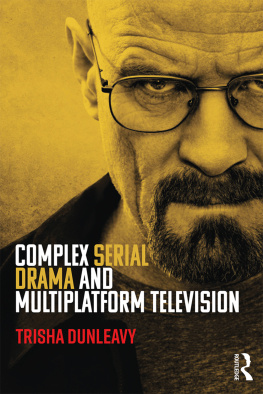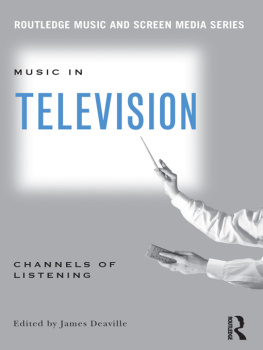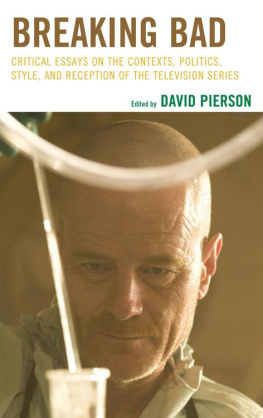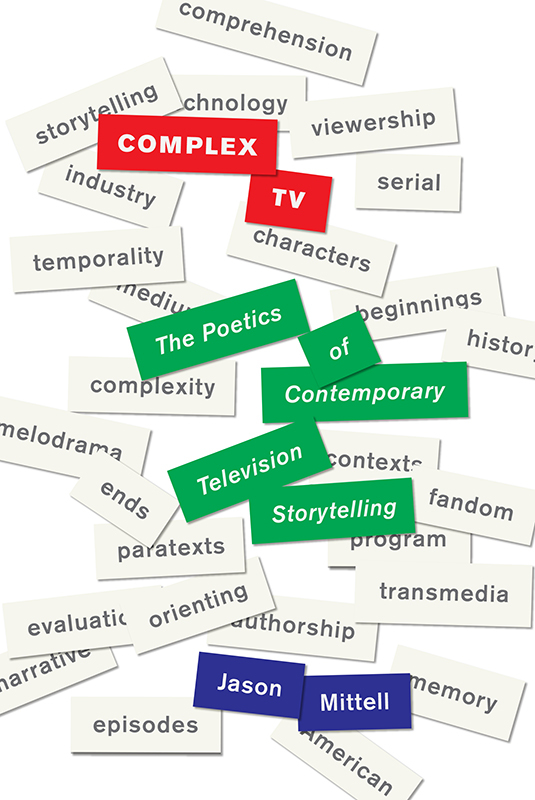A previous version of this material was published online by MediaCommons Press in 2012 2013.
References to Internet websites (URLs) were accurate at the time of writing. Neither the author nor New York University Press is responsible for URLs that may have expired or changed since the manuscript was prepared.
New York University Press books are printed on acid-free paper, and their binding materials are chosen for strength and durability. We strive to use environmentally responsible suppliers and materials to the greatest extent possible in publishing our books.
As befits a book about long-form serial storytelling, this book took many years to produce, encountered numerous gaps, and often felt like it would never end. Unlike serial television, there is a singular author noted on the cover, but nonetheless many others contributed ideas, feedback, and support in the metaphorical writers room I lived in throughout the long process it took to write this book.
I first presented early versions of the ideas explored in this book in 2005, at a departmental colloquium at Middlebury College. Two of my colleagues in attendance had a profound impact shaping what was to come: Michael Newbury, who vitally pointed me toward Neil Harris and the operational aesthetic, and Christian Keathley, who has been my invaluable sounding board for more than a decade. Another colleague joined Middlebury years later, and since then Louisa Stein has been an essential reader of my work, helping me nuance my ideas and argumentation. Beyond those three friends, countless other colleagues and students at Middlebury have provided feedback, encouragement, and support throughout the process of writing this book. Special thanks to Jim Ralph, Middleburys Dean of Faculty Research and Development, for providing vital funding to support my research and publication process.
Most of the book was first drafted during my 2011 2012 academic leave in Germany, supported by the DFG in the framework of the Lichtenberg-Kolleg of the Georg-August-Universitt Gttingen. The staff and fellows at Lichtenberg provided the perfect environment for focused work on this project, and I learned from them all. My time in Germany was in collaboration with the Research Unit on Popular Seriality, where I benefited from excellent collegiality and conversations from many members of the group, including Regina Bendix, Shane Denson, Andreas Jahn-Sudmann, Kathleen Loock, Ruth Mayer, Alexander Starre, Daniel Stein, and Baerbel Tischleder. Most importantly, my year in Germany connected me with Frank Kelleter, whose intellectual contributions to and support of my work was unsurpassed; along with Susanne Krugmann, their familial friendship and hospitality was truly life changing.
The book was written serially, with the many drafts of ideas presented at conferences and lectures, posted on my blog, excerpted in chapters, and prepublished on MediaCommons. I have lost track of everyone who provided vital feedback at those presentations and online publications, but the following people all offered meaningful thoughts, comments, and support, and hopefully they can hear their voices reflected in this final version: Christine Becker, Robert Blanchet, Brett Boessen, Paul Booth, David Bordwell, Jens Eder, Sam Ford, Christine Geraghty, Lauren Goodlad, Jonathan Gray, Stacy Hartman, Scott Higgins, Matt Hills, Jason Jacobs, Henry Jenkins, Michael Kackman, Mikls Kiss, Ioana Literat, Geoff Long, Amanda Lotz, Myles McNutt, Caryn Murphy, Sean OSullivan, Steven Peacock, Roberta Pearson, Marie-Laure Ryan, Aaron Smith, Anthony Smith, Greg Smith, Murray Smith, Michael Suen, Ethan Thompson, Jan-Nel Thon, Elizabeth Traube, Margrethe Bruun Vaage, Robyn Warhol, and James Zborowski.
I conducted interviews with numerous people working in the media industries as part of my research process. Special thanks to Carlton Cuse, Nick Fortugno, Bryan Fuller, Javier Grillo-Marxuach, Damon Lindelof, Gregg Nations, Shawn Ryan, and Owen Shiflett for taking time to share your experiences with me.
This book went through two stages of publication. The first was the online serialized version via CommentPress on MediaCommons Press thanks to Avi Santo, Monica McCormick, Bob Stein, and my other MediaCommons colleagues for building and maintaining the site and its community. But most of all, thanks to Kathleen Fitzpatrick for inspiring this new model of scholarly communication, providing the expertise and energy that keeps the site running, and being a great friend throughout the decade of this books gestation.
The second publication stage results in the book you are reading now, on page or screen, which is due to the supportive staff at NYU Press, especially Alicia Nadkarni, who handled countless logistical issues in getting the book to press. Eric Zinner has been an endless source of support for this project, offering forgiveness and flexibility to an author who takes too long to write too much and insists on posting it all online. Erics support for innovative forms of publication and making scholarship as accessible and affordable as possible is refreshing in an era when the academic publishing industry seems to be moving in the other direction.
Finally and most importantly, I want to thank my family for being my overriding A plot throughout the long runner of Complex TV. Greta, Anya, and Walter have grown up while I worked on this book, almost old enough to watch some of the series I discuss herein I look forward to rewatching some of these series through their eyes. Ruth was usually the first person to talk through my thoughts on contemporary television, typically in postepisode couch conversations. Without her love and support in all ways, this book would never have been written.
Many sections and ideas in this book were published in earlier versions. Beyond the full draft on MediaCommons Press and posts on my blog, JustTV, I would like to thank and acknowledge the editors and publishers of the following articles and chapters:
Narrative Complexity in Contemporary American Television, Velvet Light Trap 58 (Fall 2006): 29 40.
Speculation on Spoilers: Lost Fandom, Narrative Consumption, and Rethinking Textuality, coauthored with Jonathan Gray, Particip@tions 4, no. 1 (May 2007), http://www.participations.org/Volume%204/Issue%201/4_01_graymittell.htm.
All in the Game: The Wire, Serial Storytelling and Procedural Logic, in Third Person: Authoring and Exploring Vast Narratives, edited by Noah Wardrip-Fruin and Pat Harrigan, 429 438 (Cambridge: MIT Press, 2009).

